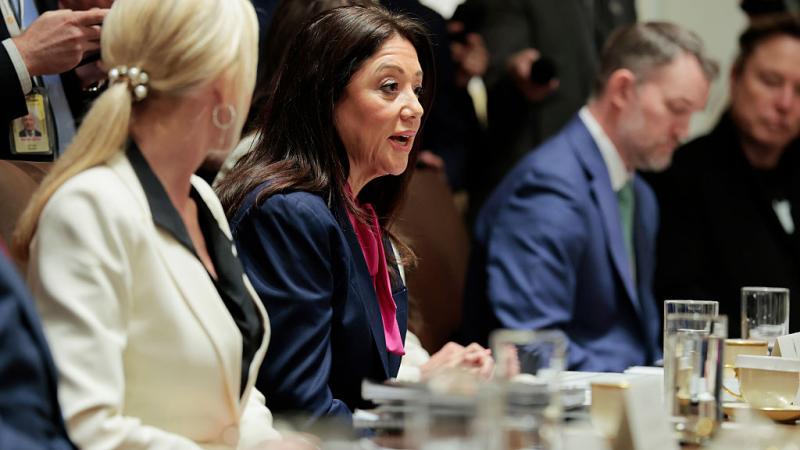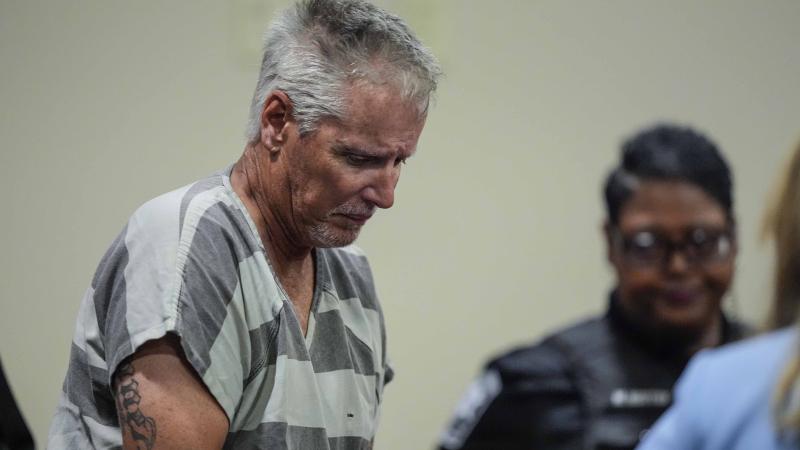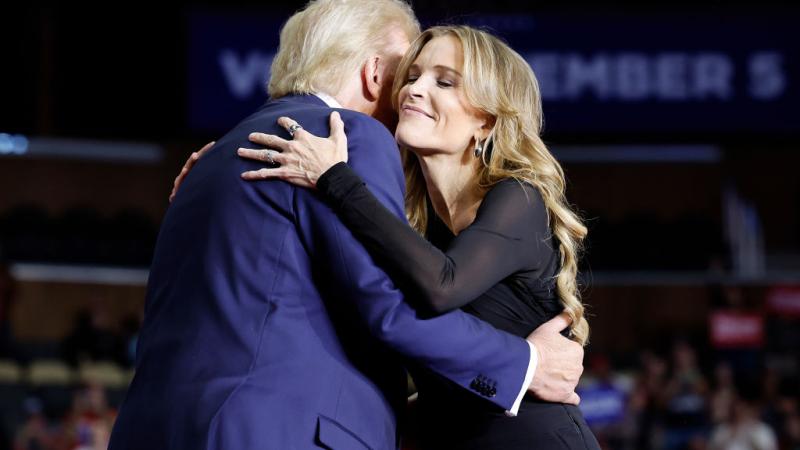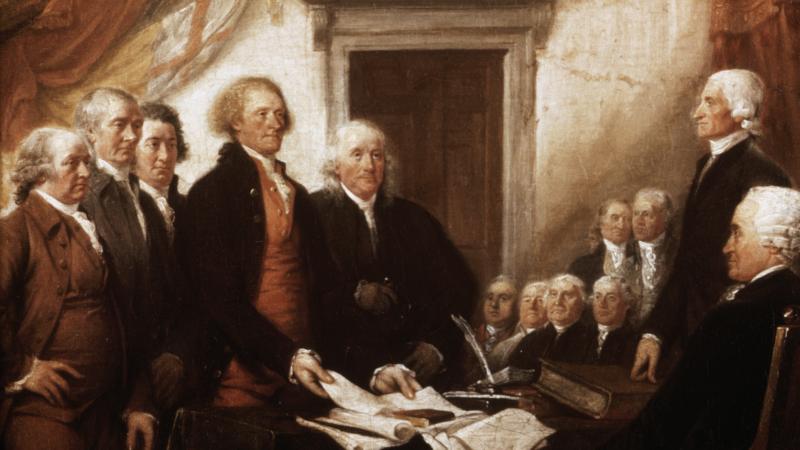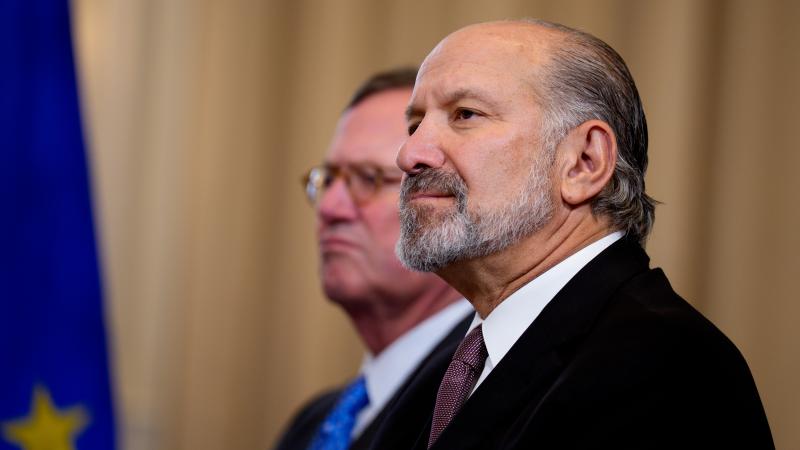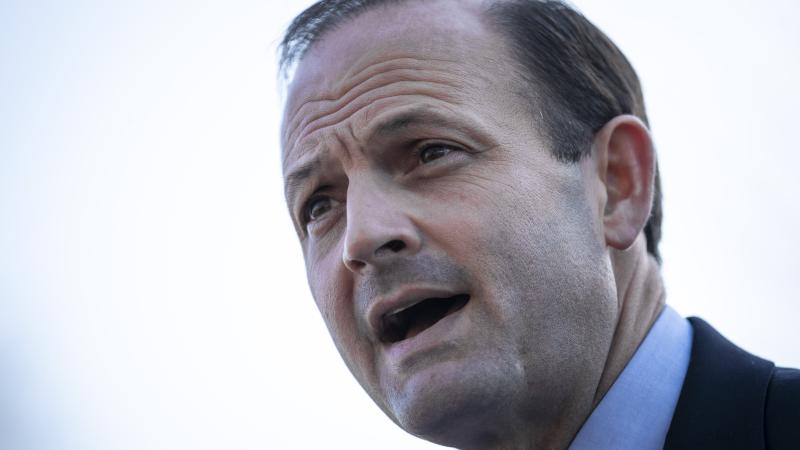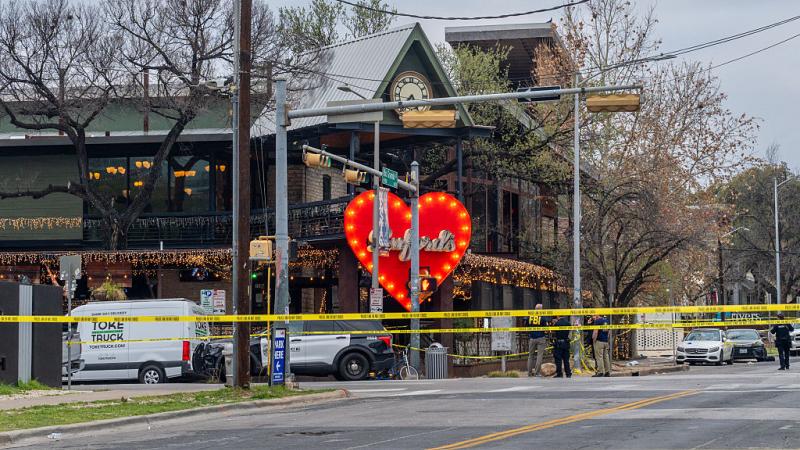Trump's impeachment lawyer sues to block employer vaccine mandate as 'compelled speech'
University of Pennsylvania's hospital network claims Bruce Castor's argument would "transform all private employers into state actors" just for agreeing with feds on vaccine mandates.
Former President Trump's lawyer from his second impeachment trial is trying to halt a private hospital network's COVID-19 vaccine mandate with a novel legal argument: It's a "state actor" unconstitutionally compelling speech.
The University of Pennsylvania Health System (UPHS) took on the imprimatur of government following "the deep and continuous encouragement" of President Biden, the CDC, FDA and U.S. Equal Employment Opportunity Commission to require employees to get vaccinated, according to the federal lawsuit.
It also names Labor Secretary Scott Ketcham and Health and Human Services Secretary Xavier Becerra as defendants because they "conspir[ed] to introduce regulations under the Occupational Safety and Health Act" that compel "un-sought-out, and individually undesirable" political speech from workers across America.
Disclosing that one is not vaccinated against COVID, a "previously apolitical act" in the context of other vaccines, has taken on an "intensely toxic political nature" as seen in the correlation between COVID vaccine hesitancy and political party affiliation.
Such disclosure is most often followed by "public derision" against the unvaccinated individual, said the unnamed current and former employees of UPHS, incorporated as plaintiff Pennsylvania Informed Consent Advocates.
The group, which Epoch Times said includes 100-200 members, asked the court to deem that this disclosure "holds the intent, weight, and social effect of partisan political speech."
It's represented by Bruce Castor, who also represented January 6 riot defendants. He told Epoch Times that beyond the conventional employees, college students who received a 75% tuition break by working for a year at a UPHS hospital would have to pay it back in three months unless they got jabbed.
UPHS scoffed at Castor's legal arguments in its response filing Wednesday, claiming there is no authority for his "outlandish proposition" that vaccination status becomes speech by virtue of partisanship.
The hospital network mocked the idea that it "magically became a state actor" by requiring employees to be vaccinated. "Taken to its logical extreme, Plaintiff’s absurd position would transform all private employers into state actors" as long as the government previously endorsed vaccination.
Ketcham and Becerra have yet to file responses, according to the court docket.
Arbitrary exemptions
The "state actor" argument — that private entities are bound by the Constitution in certain contexts — was invoked in another Ivy League lawsuit awaiting a decision from the 2nd U.S. Circuit Court of Appeals.
President Obama's Department of Education coerced Cornell University into "exercising judicial power without the due process of law" against a professor accused of sexual misconduct and denied tenure, and New York's lawsuit against Trump's department for restoring due process rights suggests the state plays "a significant role" in university decisions, the suit claims.
In the case of coerced COVID vaccinations, federal agencies started "publicity drives" in late March to "encourage and entice private corporations to act as government agents" by mandating vaccination for employees, Castor's suit says.
Biden's instructions to the Occupational Safety and Health Administration (OSHA) and Centers for Medicare and Medicaid Services (CMS), overseen by Ketcham and Becerra, indisputably make private employers government agents "if they were not already" through vaccine mandates. (OSHA and CMS released their proposed employer mandates Thursday, a day after UPHS's response claiming it's not a state actor.)
By "anticipating and implementing the formal requirements outlined by President Biden" in response to the feds' initial publicity drive, including the jab-or-job choice, UPHS became a government agent, the suit claims. It continues to wage a "harassment/embarrassment/shaming campaign" against unvaccinated employees.
The hospital network also applied "new and far more restrictive applications" for religious exemptions to the COVID vaccines than to other vaccines, showing it's a "willing participant" in the government's unconstitutional attempt to circumvent checks on its power.
The suit accuses UPHS of arbitrarily denying exemption requests, letting "wholly unqualified" hospital leadership judge whether they are "bona fide, deeply held" religious beliefs. Employees considered "more valuable to their day-to-day operations" were more often granted exemptions.
The suit seeks to ban UPHS from requiring proof of vaccination as a condition of employment, stop the federal defendants from enforcing their proposed unconstitutional regulations, and pay harmed employees and invite back those who were fired.
The hospital network called each claim by Castor "patently deficient" in its motion to dismiss Wednesday, adding that he couldn't even sue without identifying the members of the incorporated employee group.
"Challenges to COVID-19 vaccination mandates have been summarily rejected by courts around the country" and so should this "specious" litigation, UPHS said. The allegedly arbitrary treatment of religious exemption requests, for example, cannot be challenged because such an exemption process is not constitutionally required.
The suit offers no evidence that UPHS imposed its vaccine mandate in May "because of, or in response to, governmental action," or that the employees pursued "much less exhausted" administrative remedies required before going to court.
It could not have responded to an "unspecified and still-unenacted federal regulation" and Castor doesn't allege "any government official even communicated with UPHS regarding a vaccine mandate," whereas the hospital network has a longstanding mandate for other vaccines.
In the 3rd Circuit, which governs UPHS, conduct is not "presumptively expressive" unless a plaintiff demonstrates "intend[ing] subjectively" for that conduct to communicate a message to observers who actually understood it.
UPHS cited a trial ruling that filling out a religious exemption form "in no way comments on or endorses" a pro-vaccination message, and a 3rd Circuit ruling striking down a First Amendment challenge to a school athletic participation form requiring students to confirm they have read the anti-drug policy.
"The same is true here, as employees' confirmation of vaccination does not constitute agreement with the UPHS mandate," the motion says, "just as wearing a required face mask does not constitute expressive speech endorsing a mask requirement."


